BIRDS (Boosting Initiatives & Resources to Develop Social innovation)

BIRDS is co-funded by the European Union through the Social Innovation+ Initiative, as part of five transnational consortia from 2024 to 2027. The partners are Avise (France), Portugal Social Innovation (Portugal), Cohesion&Development Agency (Portugal), the Ministry of Family Diversity and Social Services (Spain) and Forum for Social Innovation (Sweden).
News
Workstreams
This workstream, led by Sweden, focuses on strengthening regional ecosystems for Social Innovation. Existing initiatives to support social innovation at regional levels are often underused and not connected enough to the NCCs. Strengthening regional organization through methods, guides and learning opportunities on national and European level has the potential to support social innovation as well as the national ecosystems for Social Innovation. It can support bottom-up initiatives but also policy-makers and people with mandate to use co-creative strategies for social innovation when addressing societal challenges in their regions.
This workstream will deliver:
- A digital model and tool for mapping, visualising, and connecting regional actors in support structures and ecosystems for social innovation and around societal challenges;
- A guide that support the organisation of social innovation support structures and processes on regional levels. Transnational learning exchange between regional support structures and NCCSIs, including a study visit to a regional support structure;
- Transnational learning exchange between regional support structures and NCCSIs, including a study visit to a regional support structure.
This workstream will build on previous and accumulated knowledge. In 2024, FfSiS and the NCC, mapped regional collaboration on societal challenges in Sweden and Europe. Spain has expertise in interactive mapping to visualise the social innovation ecosystem around complex social challenges, France will contribute with key learnings on opening up for cross-sectoral cooperation and social innovation between the public, private and third sectors. Portugal has valuable experiences in enhancing regional structures and strategies supporting social innovation as well as using learning-labs and self-diagnosis tools.
This workstream, led by France, focuses on evaluating social innovation and supporting its scale-up. Social impact evaluation is relevant as it helps social innovators monitor their impact but also decision-makers to better identify and fund those SI activities with potential to scale up and solve complex social issues at a larger scale. Besides, impact evaluation is a pivotal step in moving from experimentation to generalisation, i.e. from social innovation to social policy. Finally, social innovators need both financial and non-financial support along their scale-up journey.
Avise has a solid expertise in this field. Since 2015, it manages and facilitates Social Value France, the first network of exchange and debate around impact evaluation in the country (within the Social Value International network), assembling over 170 practitioners and 100 organisations. Moreover, in 2020, Avise created a dedicated training programme on social impact assessment for SSE supporters and runs a national scale-up support programme since 2014. Other consortium members also bring their expertise. Portugal (AD&C / PSI) developed an ESF+ funding scheme allowing social economy entities to finance social impact evaluation, as evaluation is a key process required from the projects being funded. Spain (GDFDSSSS) included in its financing system robust evaluations of the social impact of innovative solutions. It also carries out meta-evaluation processes to understand the global and aggregate impact of different initiatives. Sweden (FFSIS) has written reports and a guide on impact assessment. It is also currently involved in developing the standard for measuring impact, managed by the Swedish Institute for Standards.
All National Competence Centres within the consortium are willing to contribute to shape and improve policies and actions to support social innovation.
Therefore, the transnational activities within this workstream of BIRDS will look at:
- Developing mature social innovation evaluation ecosystems;
- Supporting the scale-up of social innovation;
- Moving from social experimentation to public policy (mainstreaming).
This workstream led by Portugal, focuses on Financing Social Innovation and aims to develop a comprehensive, long-term strategy to fund all stages of social innovation (SI), ensuring its sustainability and scalability. The package targets three key financing objectives: strengthening the SI ecosystem, improving public policies, and mainstreaming SI. National Competence Centers (NCCs) play a vital role in diversifying and reinforcing financing models, requiring an up-to-date understanding of financial instruments such as Social Impact Bonds (SIBs) and blended finance mechanisms.
Portugal (AD&C/PSI) was the first EU Member State to implement a blended finance mechanism using ESF funds during the 2014-2021 funding cycle, integrating grants, social outcomes contracting, and a financial instrument providing access to loans and equity. This approach will continue under ESF+, supporting social innovation projects through grants, social outcomes contracting, and finance not linked to costs.
Other consortium countries contribute valuable expertise in SI financing: France has a strong social finance network, yet only 0.45% of national savings is allocated to the social economy; Spain has made substantial SI investments through Next Generation EU funds (2021–2026); and Sweden has developed various impact funding initiatives, with the Swedish ESF Managing Authority launching a dedicated SI financing call in 2024.
This workstream will conduct a detailed analysis of these frameworks, identifying best practices for sustainable SI financing.
Its transnational activities include:
- A publication on innovative financing models;
- A Pilot Outcomes Academy Training Programme for public administration on social outcomes contracting;
- A practical guide for social investors to navigate the evolving SI investment landscape.
This workstream, led by Spain, focuses on the operational consolidation of the National Centres of Competence for Social Innovation (NCCSIs). The objective of this WP is to contribute to the consolidation and sustainability of the NCCSIs as references and catalysts of social innovation in the different countries of the consortium and in Europe.
Although we find variability in the operating models and structures of the NCCSIs developed by each Member State, one of the common and central elements is the creation of synergies and close interactions with the ESF+ programme authorities, which are responsible for implementing the ESF+ priorities for social innovation actions. In addition to this, the creation of synergies with the EaSI National Contact Points (NCPs), who report on the Employment and Social Innovation (EaSI) programme, presents itself as an opportunity to boost the NCCSIs.
With this in mind, the overall objectives of this work package are:
- Develop the vision and strategy for improving the operational model of the NCCSI, in close cooperation with the ESF+ Managing Authorities, while integrating the EaSI NCPs;
- Establish systematic cooperation and exchange with ESF+ Managing Authorities and EaSI NCPs;
- Participate and exchange lessons learned and work together within the Social Innovation Community of Practice.
Through exchanges and collaborative work with the other countries of the consortium (France, Sweden and Portugal) and their Managing Authorities, and with the Social Innovation Community of Practice (SI CoP), the aim is to create a joint vision, strategy and action plan for each country in order to boost social innovation and improve the NCCSI operating model.
To this end, three transnational activities are proposed:
- Learning and exchange journey with the different ESF+ Managing Authorities;
- Exchange between the EaSI NCPs and the NCCSI;
- Testing the model and tools developed by the SI CoP for the orientation of NCCSI to complex social challenges.
Results
In order to expand its impact beyond this 4-countries partnership over 3 years, the BIRDS partners are willing to capitalise on and disseminate their learnings and experiences towards all social innovation stakeholders from all EU Member States. Key results, works and deliverables will be shared here.
BIRDS and Social Innovation meetings 2024-2025
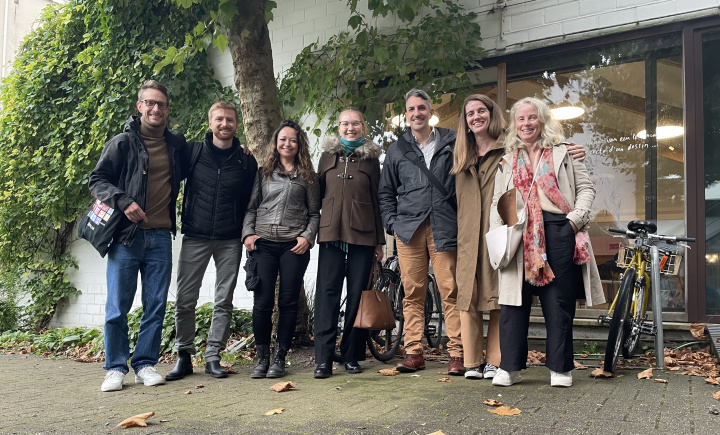
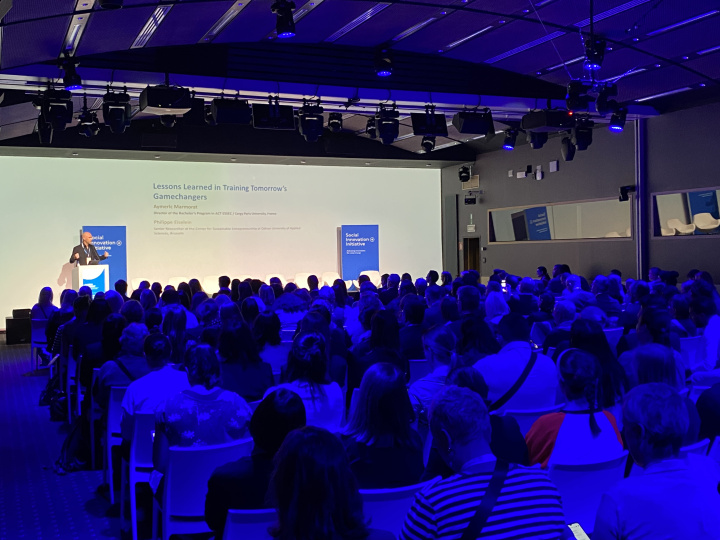
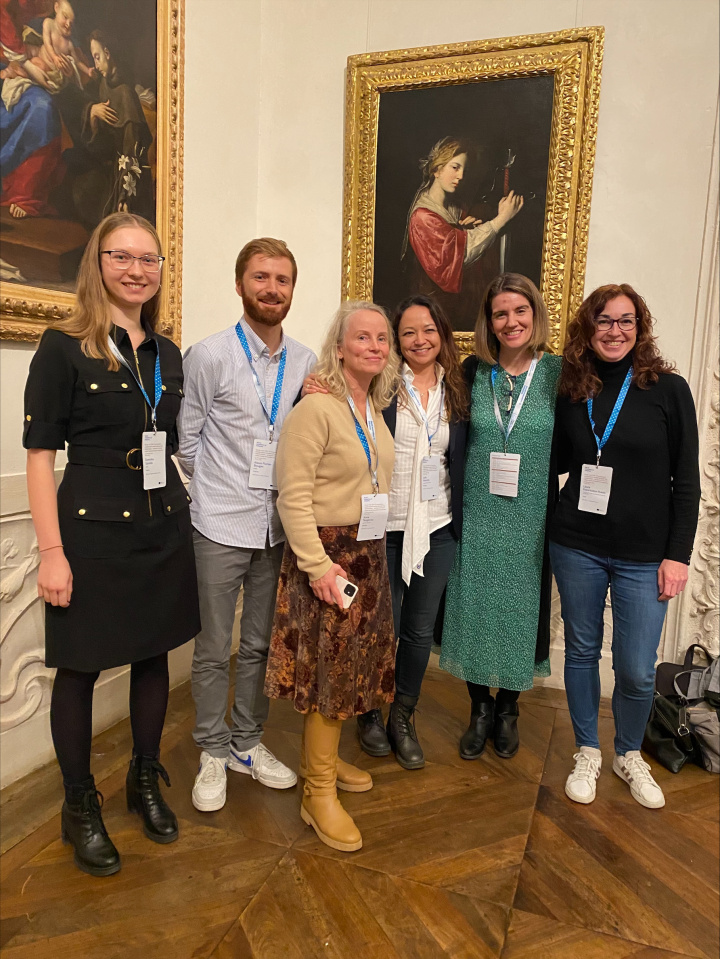
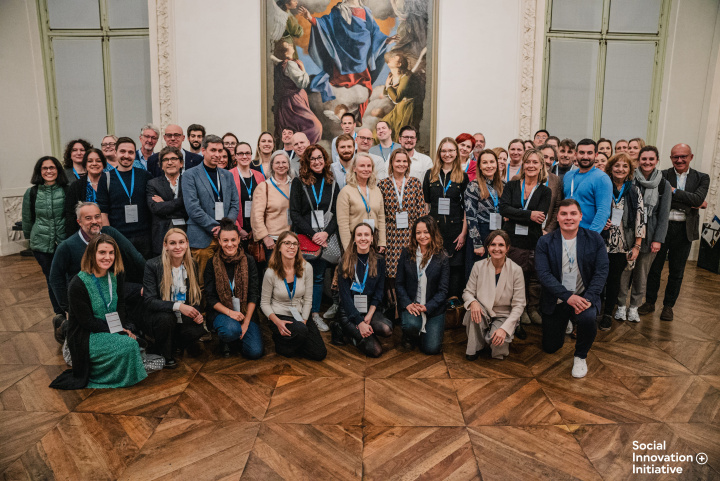
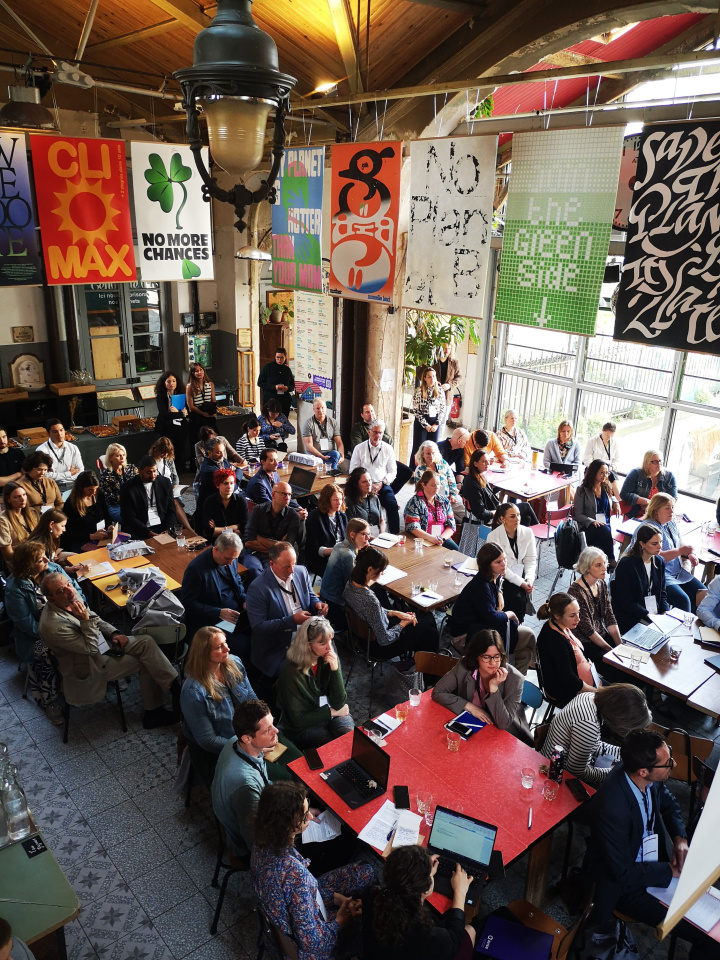
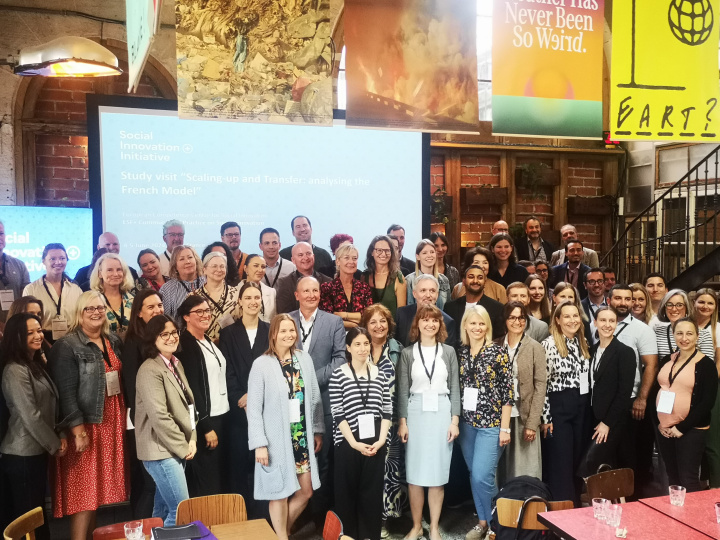
The partners

France
Avise is a non-profit organisation based in Paris since 2002. Its mission is to develop the social and solidarity economy (SSE) & social innovation (SI) in France by supporting project leaders & helping to establish an ecosystem favouring their development.
Its mission entails providing tools and guidance to SSE and SI project owners, coordinating the SI ecosystem to share best practices and build expertise, developing support programmes in partnership with the public- and private-sector stakeholders and funding SSE projects through the European Social Fund (ESF+).
Avise has been endorsed by the French ESF Managing Authority to act as the national competence centre for social innovation (NCCSI), in a mission to support the development of social innovation in France and throughout Europe.
To that end, Avise acts on the following levels and works towards the following targets:
- on the national level as a complement to regional and local stakeholders;
- in cooperation and in partnership with the stakeholders in the French ecosystem of support for social innovation and the social and solidarity economy (SSE);
- by seeking to break down barriers around projects and rally public - and private-sector stakeholders, citizens, researchers, and SSE stakeholders around a common goal.

Portugal
Portugal Social Innovation (PSI) is a pioneering government initiative that has mobilized EUR 152 million to implement innovative financial instruments tackling social challenges. As the first EU Member State to allocate European social funds specifically for testing new financing mechanisms, PSI has launched 18 Calls for Proposals, approving 698 social innovation projects and engaging 481 organizations and 848 social investors from various sectors. PSI aligns with the UN 2030 Agenda for Sustainable Development and the European Pillar of Social Rights, overseeing the National Competence Centre for Social Innovation (NCCSI) in Portugal.
In 2022, it launched the 2030 Agenda for Impact, developed by the FUSE National Advisory Committee, comprising over 40 public, social, and private sector entities. This initiative is expected to include ongoing progress monitoring of five goals and 14 recommendations (2022-2027) through regular plenary and working group sessions. Looking ahead, PSI is leading the development of a National Strategy & Action Plan for Social Innovation (2028-2034) to ensure Portugal’s continued leadership in impact investment and social innovation, fostering cross-sector collaboration to address pressing social challenges effectively.

Sweden
Forum for Social Innovation Sweden (FfSiS) is a national knowledge and collaboration platform for social innovation, founded at Malmö University in 2010. Through research-based knowledge and cross-sectoral collaboration, FfSiS aims at strengthening social innovation as a driver of positive societal change.
FfSiS builds on collaboration and networking between six universities – the University of Borås, Jönköping University, Luleå University of Technology, Malmö University, Umeå University, and Örebro University. Malmö University is the coordinating university.
On behalf of the Swedish ESF Council, FfSiS was endorsed to establish a National Competence Centre in relation to the European Social Fund (ESF+) in 2020. The first years involved mapping the ecosystem for social innovation in Sweden, the co-creation of the NCC with key stakeholders, and co-creation and learning between European NCCs to support the establishment of a National Competence Centre (NCC) for social innovation in Sweden. The Competence Centre has a steering group and an advisory board that involves key stakeholders in the ecosystem for social innovation in Sweden.
The NCC promotes effective, sustainable, and value-creating social innovations in implementing the European Social Fund Plus (ESF+). The NCC supports social innovation in ESF-funded projects and programs, supports the ecosystem for social innovation at large, and also aims at policy impact.
The NCC shares research-based knowledge, offers learning processes and methods, as well as meeting arenas on:
- The process of social innovation;
- Funding for social innovation;
- Impact assessment, analysis, and dissemination of social innovations;
- Support of the ecosystem for social innovation;
- Scaling and implementation of social innovations.

Spain
In Spain, the development of an NCCSI is being led by the Ministry of Social Rights, Consumer Affairs and Agenda 2030, which over the last four years has launched a Social Innovation Platform to drive pilot projects addressing complex social challenges in long-term care and deinstitutionalisation, and which has promoted the innovation ecosystem by facilitating the participation of different actors at national, regional and local level.
In this sense, collaboration channels are being established with other Ministries, Institutions and Managing Authorities (ESF+ and EaSI NCP).
Explore inspirational examples of social innovation initiatives throughout EU
The Social Innovation Match tool (SIM) is a platform where social innovation stakeholders can explore inspirational examples of successful initiatives and connect with future partners.
It is designed to facilitate the transfer and scaling-up of social innovation throughout Europe
About the Social Innovation+ Initiative

The ESF+ Social Innovation + initiative aims to help transfer and upscale innovative solutions to societal challenges, mainly in the fields of employment, education, skills and social inclusion.
With a budget of €197 million for the 2021-2027 programming period, the initiative is managed by the European Competence Centre for Social Innovation set up by the Lithuanian European Social Fund Agency (ESFA).
The Centre has two main areas of work: social innovation grants and knowledge sharing.
Financial support







